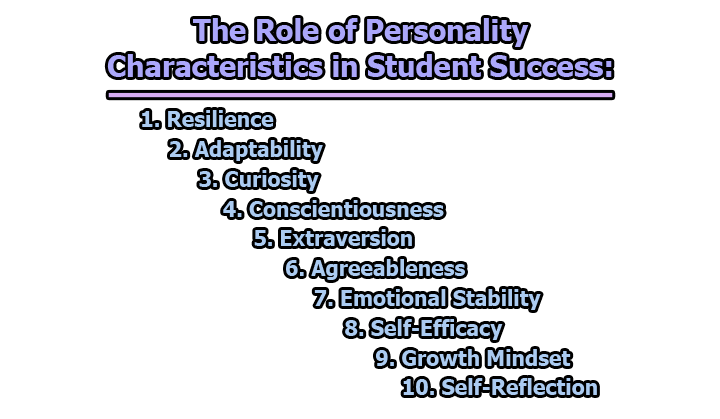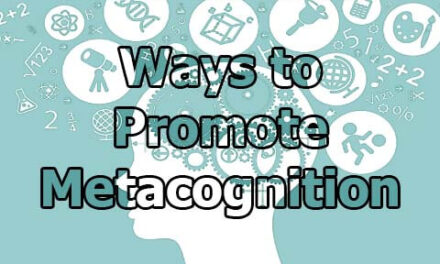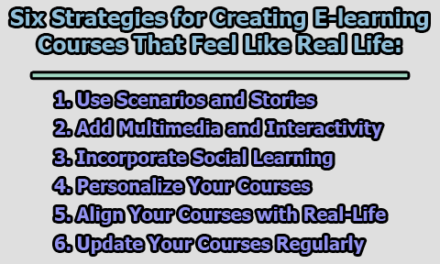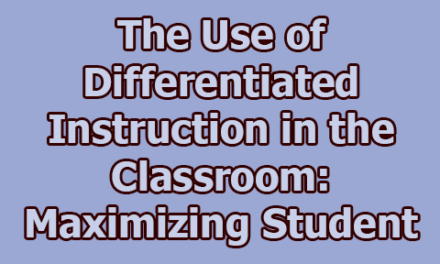The Role of Personality Characteristics in Student Success:
Personality characteristics play a significant role in shaping the academic journey and overall success of students. These traits influence how individuals approach learning, interact with others, and navigate challenges. Here are some of the role of personality characteristics in student success:
1. Resilience: Resilience is the ability to bounce back from setbacks, challenges, or failures. It involves maintaining a positive outlook, persevering through difficulties, and adapting in the face of adversity. In academia, resilience is essential for weathering the various academic, social, and personal challenges that students encounter.
Resilient students exhibit several key characteristics. They possess a growth mindset, viewing setbacks as opportunities for learning and growth rather than insurmountable obstacles. Instead of becoming discouraged by failures, they see them as temporary setbacks and remain focused on their long-term goals. Additionally, resilient students are adept at coping with stress and managing their emotions effectively, which enables them to stay motivated and perform well academically.
Importantly, resilience is not an innate trait but rather a skill that can be cultivated and strengthened over time. Educators can support the development of resilience in students by providing encouragement, teaching coping strategies, and creating a supportive learning environment where failure is destigmatized and viewed as a natural part of the learning process.
2. Adaptability: Adaptability refers to the ability to adjust to new situations, changes, or demands effectively. In the fast-paced and ever-evolving landscape of academia, students who are adaptable are better equipped to navigate the challenges they encounter.
Adaptable students demonstrate flexibility in their thinking and behavior. They are open to new ideas, willing to consider different perspectives, and able to modify their strategies when necessary. Whether faced with changes in course content, unexpected assignments, or shifting study environments, adaptable students can quickly pivot and find ways to succeed.
Cultivating adaptability involves developing skills such as problem-solving, critical thinking, and resourcefulness. Educators can foster adaptability in students by encouraging them to embrace change, providing opportunities for experiential learning, and teaching them how to effectively manage uncertainty and ambiguity.
3. Curiosity: Curiosity is the innate desire to learn, explore, and seek out new experiences. It drives intellectual inquiry, fuels creativity, and fosters a lifelong love of learning. In academia, curious students are more engaged, motivated, and academically successful.
Curious students possess a thirst for knowledge and a natural inclination to ask questions and seek answers. They are curious not only about the subject matter they are studying but also about the world around them. This curiosity leads them to actively participate in class discussions, pursue independent research projects, and delve deeper into topics that interest them.
Cultivating curiosity involves creating an environment that encourages inquiry, exploration, and discovery. Educators can nurture curiosity in students by providing opportunities for hands-on learning, fostering a sense of wonder and awe, and encouraging them to pursue their interests outside of the classroom.
4. Conscientiousness: Conscientiousness is characterized by traits such as diligence, organization, and responsibility. Conscientious students are disciplined in their approach to academics, set high standards for themselves, and demonstrate a strong work ethic.
Conscientious students excel in their studies because they prioritize their academic responsibilities and consistently strive for excellence. They are diligent in their work habits, adhere to deadlines, and pay attention to detail. This conscientious approach not only leads to higher academic achievement but also instills valuable life skills such as time management, self-discipline, and perseverance.
Educators can support the development of conscientiousness in students by teaching study skills, goal-setting strategies, and time management techniques. Providing clear expectations, offering constructive feedback, and recognizing and rewarding hard work can also help reinforce conscientious behavior.
5. Extraversion: Extraversion is characterized by sociability, assertiveness, and enthusiasm. Extraverted students thrive in social settings and enjoy interacting with others. While introverted students may prefer solitary study environments, extraversion offers unique advantages in collaborative learning environments.
Extraverted students are often proactive in forming study groups, participating in class discussions, and seeking out opportunities for social interaction. They are comfortable expressing their ideas and opinions, which can enhance their learning experience and contribute to a dynamic classroom environment.
Cultivating extraversion involves providing opportunities for students to engage socially, collaborate with their peers, and develop their communication skills. Group projects, team-based learning activities, and class discussions are all effective ways to encourage extraverted behavior in students. Additionally, creating a supportive and inclusive classroom environment where all students feel valued and respected can help introverted students feel more comfortable participating and engaging with their peers.
6. Agreeableness: Agreeableness refers to traits such as empathy, cooperation, and altruism. Students who are high in agreeableness tend to prioritize harmonious relationships with their peers, teachers, and classmates. They are compassionate listeners, willing collaborators, and supportive team members.
Agreeable students contribute to a positive and inclusive learning environment by fostering a sense of community and cooperation. They are empathetic towards others’ perspectives, which enhances communication and reduces interpersonal conflicts. Additionally, their willingness to help and support their peers fosters a collaborative spirit that benefits the entire academic community.
Educators can nurture agreeableness in students by promoting empathy, compassion, and kindness in the classroom. Encouraging cooperative learning activities, group projects, and peer mentoring programs can provide opportunities for students to practice and develop their agreeable traits.
7. Emotional Stability: Emotional stability, also known as emotional resilience, refers to the ability to manage stress, regulate emotions, and maintain mental well-being. Students who are emotionally stable exhibit calmness, composure, and adaptability in the face of challenges or adversity.
Emotionally stable students are less likely to be overwhelmed by academic pressure or personal setbacks, allowing them to stay focused and perform optimally in their studies. They are adept at coping with stressors, problem-solving, and seeking support when needed. As a result, they are better equipped to handle the rigors of academia and maintain a healthy work-life balance.
Cultivating emotional stability involves teaching students coping strategies, stress management techniques, and mindfulness practices. Creating a supportive and nurturing learning environment where students feel safe expressing their emotions and seeking help when needed is also essential for promoting emotional resilience.
8. Self-Efficacy: Self-efficacy refers to an individual’s belief in their ability to succeed in specific tasks or situations. Students with high self-efficacy are confident in their academic abilities, believe they can overcome obstacles, and are motivated to achieve their goals.
Self-efficacious students approach challenges with a sense of optimism and determination. They set challenging goals, persevere in the face of setbacks, and view failures as opportunities for growth. This confidence in their abilities empowers them to take on new challenges, seek out opportunities for learning, and persist in their academic endeavors.
Educators can foster self-efficacy in students by providing opportunities for mastery experiences, offering constructive feedback, and setting achievable yet challenging goals. Encouraging students to reflect on their successes and celebrate their achievements can also help reinforce their sense of self-efficacy.
9. Growth Mindset: A growth mindset is the belief that abilities and intelligence can be developed through effort, perseverance, and learning. Students with a growth mindset are open to challenges, embrace failure as a natural part of the learning process, and are committed to continuous improvement.
Students with a growth mindset are more resilient in the face of setbacks because they see obstacles as opportunities for learning and growth. They are not afraid to take risks, seek out feedback, and push themselves outside of their comfort zones. This mindset fosters a love of learning and empowers students to reach their full potential.
Educators can cultivate a growth mindset in students by praising effort and persistence rather than innate ability, providing opportunities for reflection and self-assessment, and teaching strategies for overcoming obstacles and setbacks. Creating a classroom culture that values and celebrates growth and improvement can also help reinforce a growth mindset in students.
10. Self-Reflection: Self-reflection is the process of examining one’s thoughts, feelings, and experiences in order to gain insight and understanding. Students who engage in self-reflection are better able to identify their strengths and weaknesses, set realistic goals, and make informed decisions about their learning.
Self-reflective students actively seek feedback, evaluate their progress, and adjust their strategies accordingly. They are more aware of their learning processes and are able to identify areas where they need to improve. This self-awareness enables them to take ownership of their learning and make meaningful progress towards their goals.
Educators can promote self-reflection in students by incorporating reflection activities into their curriculum, such as journaling, goal-setting exercises, and peer feedback sessions. Encouraging students to reflect on their learning experiences, successes, and challenges can help them develop metacognitive skills and become more self-directed learners.
In conclusion, personality characteristics profoundly influence the academic success and personal growth of students. By cultivating traits such as resilience, adaptability, curiosity, conscientiousness, extraversion, agreeableness, emotional stability, self-efficacy, growth mindset, and self-reflection, educators and students alike can unlock their full potential and thrive in the dynamic landscape of academia.

Library Lecturer at Nurul Amin Degree College










